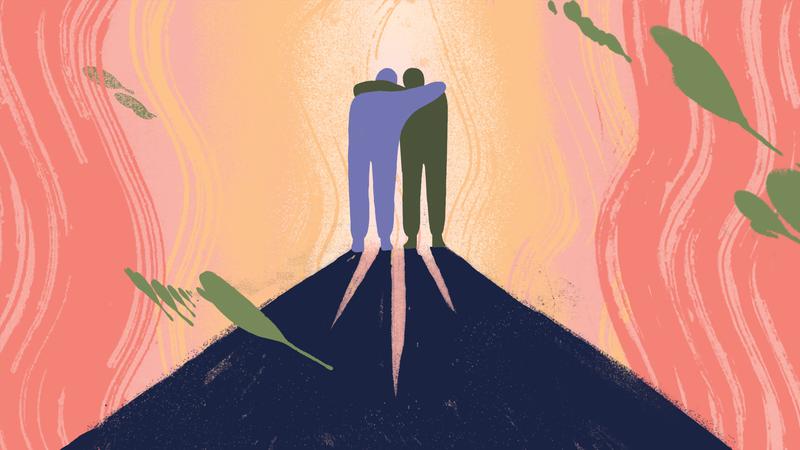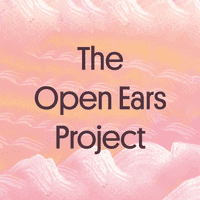The Open Ears Project - Episode Thirty: On Peace
CLEMENCY BURTON-HILL: This is the Open Ears Project, day thirty.
[MUSIC: “Sanctus” from Requiem by Gabriel Faure]
ESTHER PEREL: The language of music brings out different parts of us, it's universal. It's probably the most important thing with which you can make peace.
I’m Esther Perel, I am a relationship therapist, I am an author and the host and executive producer of the podcasts Where Should We Begin? and How's Work, and we’re listening to music from Faure and his Requiem.
I ask every couple in my office what was the first song that they danced at their weddings or what's a piece of music that represents their relationship? And very often while they're in the midst of degradation and disintegration, I played the piece and I let them sit and listen to it.
And by the way that they listen to it and still have shed a tear or smile or remember or look at each other or have some modicum of connection, I often know if there's still something left between these two people.
But when they listen to it and I see their bodies the reactions their breath everything as kind of: “this is an old part of my life and that part has come and gone” or it's: “oh, yeah, I remember vaguely” or “I have nothing to do with this anymore”, I kind of know that they are dead upon arrival.
Music has played a central part in my life forever... forever.
I think that the pieces of music that mean the most to me are often determined by the circumstances of when and where I listen to that music for the first time. There’s a vivid recollection usually of the experience of listening to that piece that then becomes part of why I like that piece.
[MUSIC: “In Padarisum” from Requiem by Gabriel Faure]
I listened to the to the Requiem of Fauré for the first time when I was driving in the hills of Jerusalem at six o'clock in the evening in the car with a friend of mine and I love six o'clock in the evening. It just has a light... and those hills and around Jerusalem are just spectacular and this music was playing and at the time I was still a very melancholic young woman, and I thought this music understands the sadness I carry inside of me.
Why I had that sadness is a whole, you know, story of my own psychoanalysis, but I remember that the music would allow me to experience to feel and to express certain kinds of sadness that I didn't know what to do with it.
And I replayed it... it was on a cassette you still had to rewind. It's just like you get these goosebumps, I just thought I need to hear this again, I need to hear this again.
You know, emotions are embodied experiences, so when you listen deeply to something it doesn't you just don't hear it with your ears, you hear it with your entire skin.
We all have an inner voice. We all can hear ourselves in a way that nobody else can. And so, I think the first element of music is our voice, before the instruments.
I think that one of the first places where I must have heard music is when my mother would sing lullabies and my deepest connection with my mother was singing, her mother's tenderness would come out when she sang, much more than in other ways.
She would sing to me in Yiddish, in Polish, in all the languages that she couldn't speak to me in. She basically could transmit her entire life and traditions that she had lost in many ways through the Holocaust.
So, before the Requiem comes the lullaby.
I can’t conceive of my life without music. It's the one place where I must be experienced in something that I think is akin to a religious feeling. I don't usually experience God-driven religious feelings. But music has that level of transport for me, of connecting me to the most raw, deep emotion that I feel in that moment from joy to sadness to anguish to hope to loss, you know, nothing will bring you to the extremity of those emotions as much as music will.
CBH: Esther Perel chose the Requiem by Gabiel Faure and she had difficulty choosing a single movement because she told me she loves the whole thing so much. We heard the Sanctus and the In Paradisum which you can listen to in full in just a moment, it closes the Requiem and it closes this very first season of The Open Ears Project. We have loved sharing these stories and this music with you over the past 30 days, if you missed any of our previous episodes you can find them at openearsproject.org or wherever you get your podcasts. People like Alec Baldwin, Jesse Eisenberg, and Wynton Marsalis, and Aminatou Sow, and Nicola Benedetti and so many more including a 9/11 firefighter, a yoga teacher and a member of the US military. If the Open Ears Project has become any sort of ritual in your life then we’d love to hear about that, we’re conducting a very short survey and we’d be so grateful if you’d consider filling it out at openearsproject.org/survey. If you’ve really liked what we’ve been doing and you’d like to hear more, please consider clicking the button that says “support us”.
I’m Clemmie Burton-Hill, our audio production team is producer Rosa Gollan and technical director Curtis Macdonald, with production assistance from Sapir Rosenblatt. Special thanks to our wider team at WNYC Studios and WQXR, including Ashley Lusk, Jacqui Cheng, Michael Berk, Greta Rainbow, Lukas Krohn-Grimberghe, Christine Herskovitz, Melissa Foster and Shannon Connolly.
Alright, here it is, the final movement of Faure’s Requiem, In Paradisum. I’ll see you soon.

